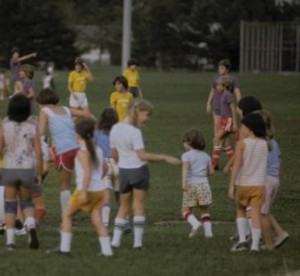Play Reduces ADHD Symptoms in Kids
Do children play enough? Observational studies have shown that kids play far less than they used to. This is partly due to the plethora of online games and other gadgets. Funny how ADHD in kids has skyrocketed just as playing has plummeted.
In this article
Play reduces ADHD
A study from the University of Sydney has found that ADHD children significantly benefit from playing. The study found that social play and feedback training increased social skills of children diagnosed with attention-deficit hyperactivity disorder.
The study included 14 ADHD children who were between five years old and eleven years old, and 14 non-ADHD children. The study consisted of seven weekly play sessions. These involved the parents, the kids and their peers, and therapists. The free-play sessions were recorded by video tape, and played back with discussions afterword. Then peer-modeling was used.
The results were measured by gauging the social interactions between the children, and the closeness to normal social play. These tests were given before and after the video playback and modeling sessions. They found that social play among both the attention-deficit hyperactivity disorder kids and the non-ADHD kids significantly improved.
The researchers concluded:
“Results support the use of play, video feed-forward/feedback techniques, therapist- and peer-modelling and parent involvement as an effective means to develop the social play skills of children with ADHD.”
In the study, the attention-deficit hyperactivity disorder children had to each invite a non-ADHD child to participate. Dr. Reinie Cordier, one of the researchers in the study, commented about the ability of play-based intervention to help heal social problems:
“This is important because having a childhood friend is crucial to preventing the development of serious relationship issues, or even anti-social behaviour, in adulthood.”
The study was led by Professor Dr. Anita Bundy, and published in the Australian Occupational Therapy Journal. Dr. Bundy has led a number of studies that have illustrated the health and psychological benefits of play.
Previous study confirms results
Dr. Bundy discussed some of the previous research on ADHD kids and play.
“In a previous study involving 350 children, we discovered that the play of children with ADHD differed from that of their peers.”
“Their study found children with ADHD had difficulty identifying the emotional states of their playmates and taking on their perspectives. Perhaps the biggest problem for children with ADHD is failing to respond to the cues their playmates are giving and to recognize when they may have gone too far. Thus play becomes disrupted,” she added.
About 8% of all U.S. children between four and 17 have now been diagnosed with ADHD. Other studies have showed that ADHD is significantly associated to the western diet and that vitamins and minerals can significantly help resolve ADHD according to other research.
So it seems there are natural approaches to ADHD in kids. Certainly, these are worth pursuing before putting kids on psychoactive drugs with a host of side effects and the future potential of addiction.
REFERENCES:
Wilkes S, Cordier R, Bundy A, Docking K, Munro N. A play-based intervention for children with ADHD: a pilot study. Aust Occup Ther J. 2011 Aug;58(4):231-40.
University of Sydney News. Managing ADHD Through Play















